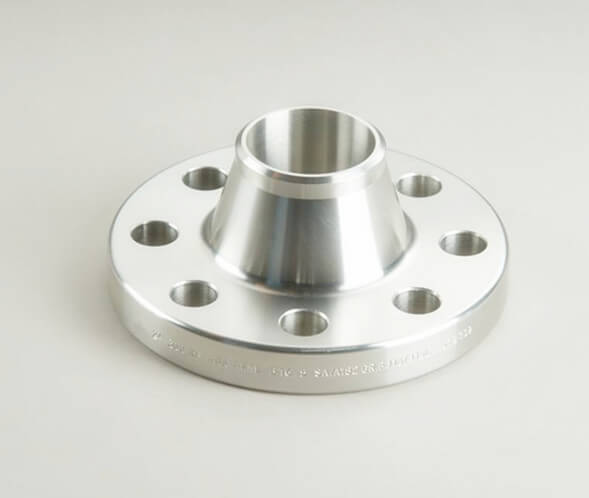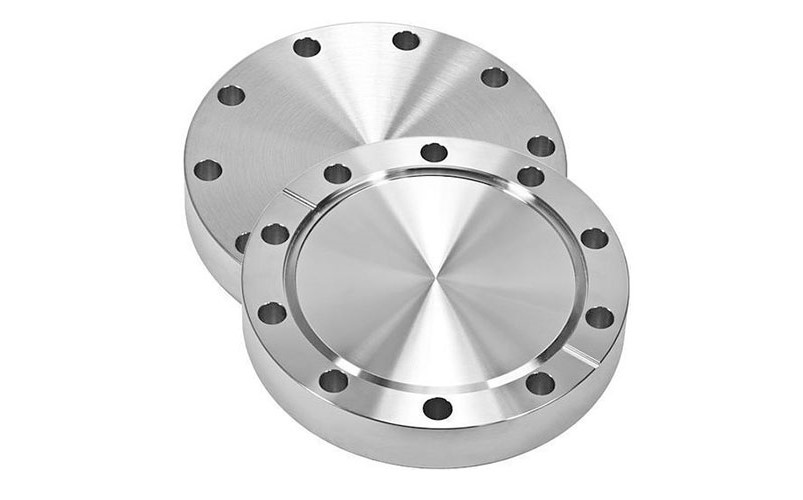

DS FLANGE


DS FLANGE
In today's competitive industrial landscape, companies are always on the lookout for materials that offer superior strength, durability, and resistance to corrosion. One such material that has gained immense popularity in recent years is duplex steel. Duplex steel is a type of stainless steel that is composed of a mixture of austenitic and ferritic stainless steels, which makes it stronger and more resistant to corrosion than traditional stainless steel. It is no wonder that it is becoming a go-to choice for various industrial applications such as construction, oil and gas, chemical processing, and more.We will explore the advantages of using duplex steel in industrial applications and how it can help achieve better performance, longevity, and cost-effectiveness in different operations. So, whether you are a business owner or an engineer, read on to discover the benefits of duplex steel and why Tesco Steel will be the right choice for your needs.
They are called duplex (or austenitic-ferritic) grades because their metallurgical structure consists of two phases, austenite (face-centered cubic lattice) and ferrite (body centered cubic lattice) in roughly equal proportions.
They are used for their good mechanical properties in the as-cast (and therefore as-welded condition) and/or their excellent corrosion resistance properties (particularly to stress corrosion cracking).



SS FLANGE
Duplex steel flanges come in various types, each with its unique features and specifications. Understanding the different types of flanges available is the first step in choosing the right flange for your project.
The most common types of Duplex steel flanges include Weld Neck, Slip-On, Blind, Socket Weld, Lap Joint, and Threaded flanges.
Weld Neck flanges are designed to provide a long-lasting and leak-free connection. They're commonly used in high-pressure piping systems and have a neck that's welded to the pipe, creating a smooth transition between the pipe and flange.
Slip-On flanges are easy to install and remove and are ideal for low-pressure systems. They're slipped over the pipe and then welded in place.
Blind flanges are used to close the end of a pipe or vessel and are commonly used in systems that require periodic inspection or cleaning.
Socket Weld flanges are similar to slip-on flanges but have a socket in the bore to allow the pipe to be inserted. They're commonly used in small-bore piping systems and have a high-pressure rating.
Lap Joint flanges are designed to be used with a stub end and are ideal for systems that require frequent dismantling. They're commonly used in low-pressure systems.
Threaded flanges have internal threads and are screwed onto the pipe. They're commonly used in low-pressure systems and are easy to install and remove.
Choosing the right Duplex steel flange for your project requires careful consideration of various factors. Here are some of the critical factors to consider when selecting the right flange for your project.
Pressure Rating and Temperature Requirements The pressure rating and temperature requirements are essential factors to consider when choosing Duplex steel flanges. The pressure rating is the maximum pressure that the flange can handle, while the temperature requirement is the maximum temperature that the flange can withstand. It's crucial to select a flange that can handle the pressure and temperature requirements of your project. Failure to do so can result in leaks, damage to equipment, and even safety hazards.
Size and Dimensions The size and dimensions of the flange must be compatible with the piping system. The size of the flange is determined by the size of the pipe to which it's connected. It's essential to select a flange that matches the size of the pipe to ensure a secure and leak-free connection. The dimensions of the flange, such as the bolt hole diameter, thickness, and outside diameter, must also be considered. The dimensions must match the piping system and other components to ensure a proper fit.
Corrosion Resistance and Material Selection Duplex steel flanges are known for their excellent corrosion resistance, making them ideal for use in harsh environments. However, not all Duplex steel alloys offer the same level of corrosion resistance. The material selection is critical when choosing Duplex steel flanges. Factors such as the type of fluid or gas being transported, the temperature, and the level of corrosiveness must be considered. Some of the most commonly used Duplex steel alloys for flanges include 304, 316, 321, and 347. It's essential to select the right material for your project to ensure corrosion resistance and longevity.
Flange Face and Surface Finish The flange face and surface finish are crucial factors that affect the sealing performance of the flange. The flange face can be flat, raised, or ring joint, and the surface finish can be smooth, serrated, or grooved. The flange face and surface finish must be compatible with the gasket and the mating flange to ensure a secure and leak-free connection.
End Connections and Joining Methods
The end connections and joining methods must be considered when choosing Duplex steel flanges. The end connection can be butt-weld, socket-weld, threaded, or flanged.
The joining method must be compatible with the piping system and other components. Factors such as the pressure and temperature requirements, the level of vibration and movement, and the ease of maintenance must be considered when selecting the right joining method.
There are many advantages to using duplex steel in industrial applications. First and foremost, duplex steel offers superior strength and durability compared to traditional stainless steel. This makes it ideal for use in applications that require high strength and toughness, such as construction, oil and gas, chemical processing, and more.
In addition to its strength and durability, duplex steel offers excellent resistance to corrosion. This makes it ideal for use in harsh environments where traditional stainless steel would fail. This includes applications in the oil and gas industry, chemical processing, pulp and paper, and food processing.
Another advantage of duplex steel is its versatility. It can be easily welded and fabricated, making it ideal for use in a wide range of applications.
Additionally, it is available in a variety of grades and finishes, which makes it easy to find the right material for your specific needs.
- Petrochemical Industries
- Cement Industries
- Chemical Industries
- Oil & Gas Industries
- Power Plant Industries
- Shipbuilding Industries
- Fertilizer Industries
- Sugar Industries
- Engineering Projects